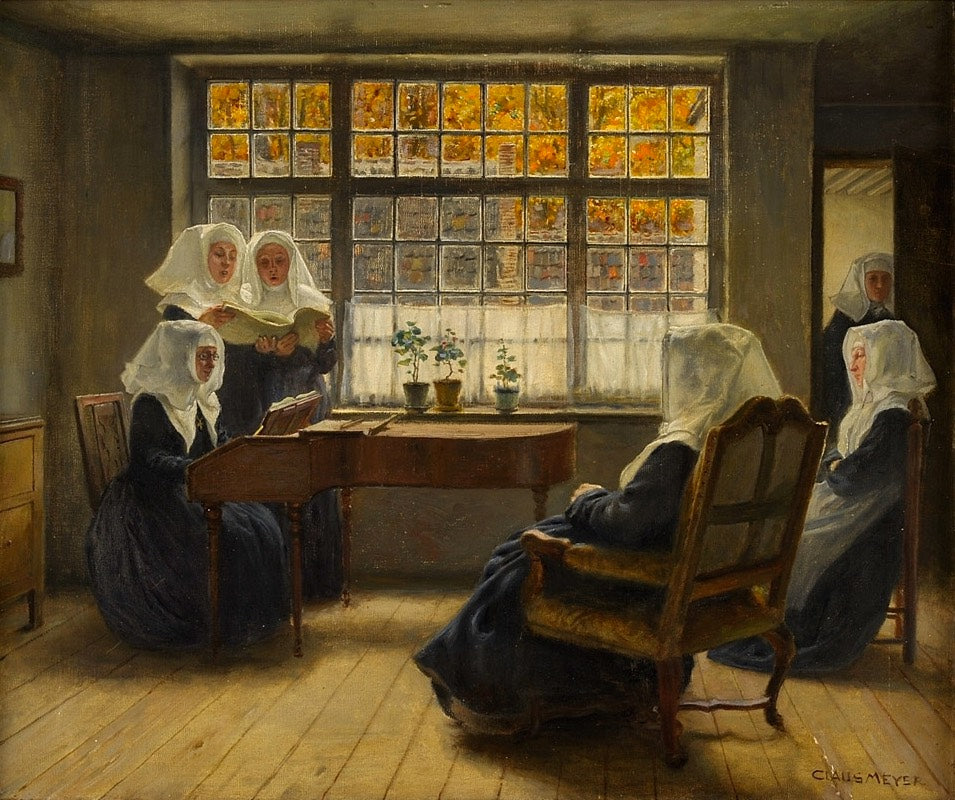German artist Claus Meyer is predominantly known for his exquisite portrayals of placid domestic moments. Born in Linden, Germany, he received a formal education via August von Kreling at the Nuremberg Art School and later at the Academy of Fine Arts, Munich.
His works are reminiscent of the masterful 17th-century luminaries, such as Pieter de Hooch (1629-1684) and Johannes Vermeer (1632-1675) who were a particular influence. He frequented museums in The Netherlands to study their technique.
Standing by an open window, she’s lost within the contents of a letter. Her expression reflected via an ornate mirror.

Claus Meyer, In Front of the Mirror
Within a quietly-lit placid environment, several nuns conduct a music lesson. The lilting sound of choral song elevating the humble setting.

Claus Meyer, Music Lesson in the Beguinages
Claus Meyer became a professor at the Düsseldorf Academy. He’s represented at the British Museum and Philadelphia Museum of Art.
1856
Born in Linden, Germany to Christoph Wilhelm Eduard Meyer and his wife Anna Adelaide Meyer (nee Kühne).
1875
Studied under August von Kreling at the Nuremberg Art School.
1876
Studied under Alexander Wagner and Ludwig von Löfftz at the Academy of Fine Arts, Munich.
1883
Visited the Rijksmuseum and the Frans Hals Museum to study along with his friends Paul Höcker and Count Leopold von Kalckreuth. Further visits in 1896 and 1906.
Gained significant praise for ‘Sewing School in the Nunnery’.
1890
Became a professor at the Grand Ducal Baden Art School in Karlsruhe.
Produced a copy of ‘Woman Reading a Letter’ after Johannes Vermeer.
1895
Became a professor at the Düsseldorf Academy.
1899
Co-founded the Düsseldorf Artists' Association.
Produced numerous history paintings for the Knights' Hall of Burg Castle.
1919
Died.

